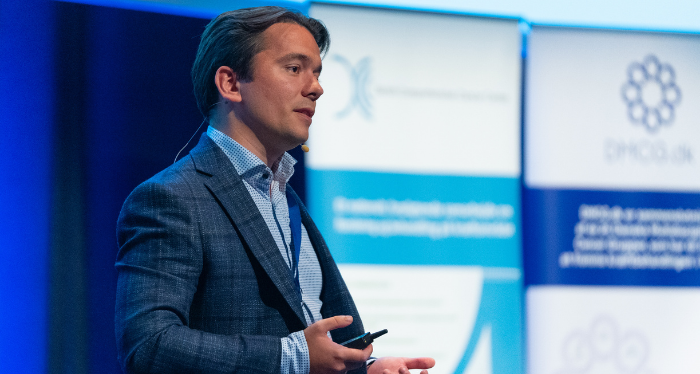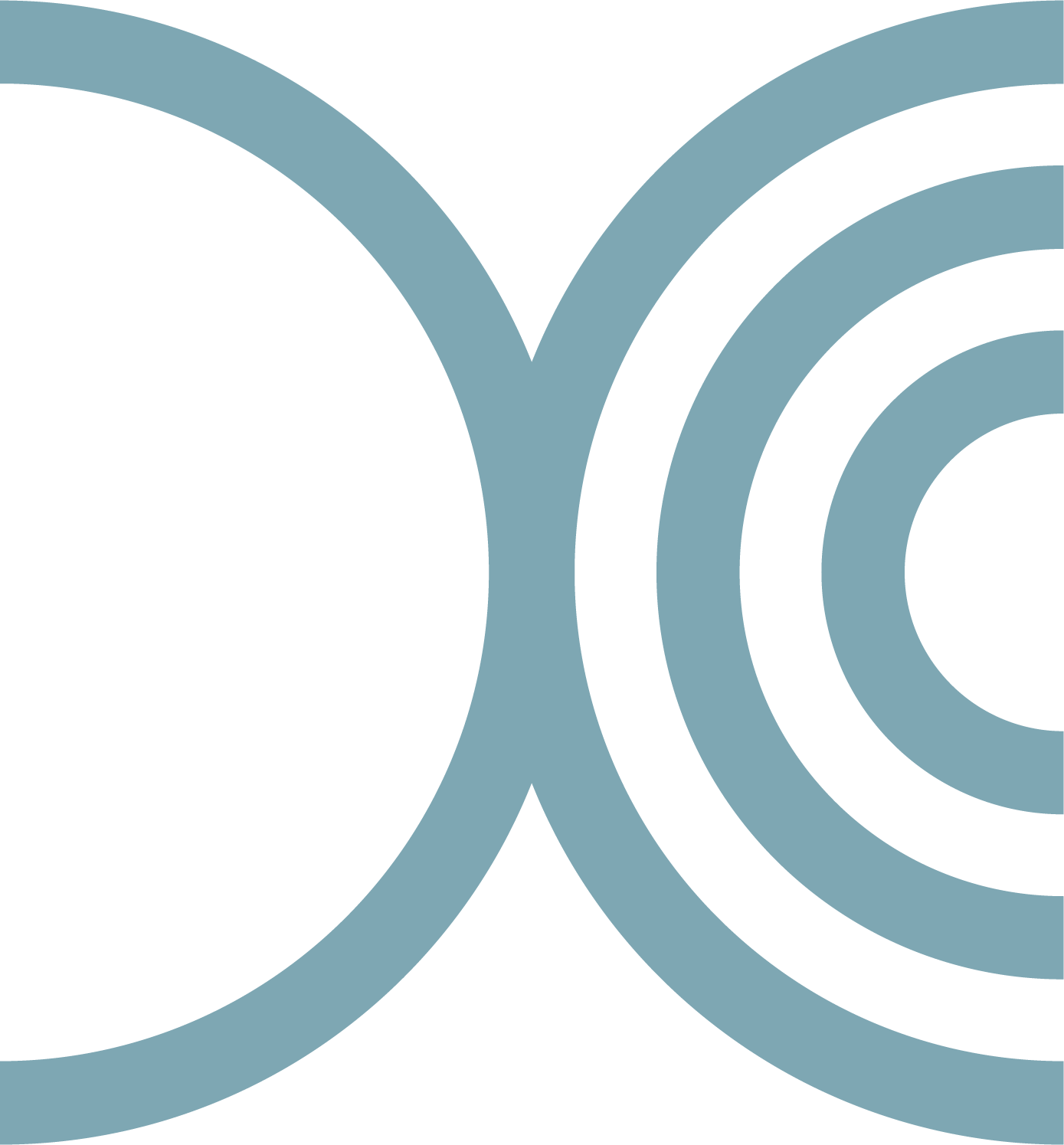
Nikola presenting at Danish Cancer Research Days 2021. DKD2021; Foto Rune Borre-Jensen
05-11-21
Glioblastoma is the most frequent and fatal type of brain cancer. There has been no noticeable change in survival of these patients for the past 15 years. A new promising treatment may change this.
”Several countries, including both Sweden and Germany, already use a treatment called Tumor Treating Fields where electrodes are placed on the scalp of the patient transmitting low-intensity alternating electric fields to the brain, which slows down division of the cancer cells in the brain. This method has shown good results and it has increased patients’ average survival from 15 to 21 months. Our research project works on further improving this treatment”, says Nikola Mikic, PhD student in neurosurgery at Aarhus University Hospital.
Nikola and his colleagues will now test if they can improve the effect of the method by drilling small holes in the patient’s scull to enhance the electric field at the exact location of the tumor. It may sound dramatic to drill holes in the scull, but Nikola Mikic ensures that this is a standard procedure with no severe risks or side effects for the patient.
”Geography should not determine which treatment you are offered”
Aarhus University Hospital collaborates with the other four Danish hospitals treating patients with brain cancer – Aalborg University Hospital, Odense University Hospital and Rigshospitalet in Copenhagen. This means that patients with brain cancer all over Denmark can be offered this potentially more effective treatment.
”Geography should not determine which treatment you are offered. I am very happy that patients at all the four hospitals treating patients with brain cancer are in the project. This also means that we can recruit the number of patients needed for the project”, says Nikola Mikic.
“All patients in the project, and not only those randomized to also undergo treatment with drilling holes in the scull, will receive the Tumor Treating Fields treatment, which is not yet a standard treatment in Denmark. In this way all patients in the project will receive a more efficient treatment than the standard treatment currently offered in Denmark”, Nikola Mikic continues.
Even a brain surgeon gets nervous
The job as a neurosurgeon is not something Nikola Mikic leaves behind when he is not at work at Aarhus University Hospital. It is important for him to make a difference to the patients. Actually, patients are offered his private telephone number so they can call him with their questions and worries – also outside business hours.
He was thrilled to get the opportunity to present his research on how he tries to improve survival for patients with brain cancer at Danish Cancer Research Days in front of 500 colleagues and patients from all over Denmark.
As a brain surgeon Nikola is trained to keep calm, but the thought of going on stage to present his research made him a bit nervous.
“When I was told that I was selected to present my research, I could hardly believe it. I am very honoured, surprised and excited that I was given this opportunity, says Nikola Mikic”.
Nikola’s abstract was selected among more than 200 abstracts
More than 200 abstracts were submitted to Danish Cancer Research Days 2021. An assessment committee reviewed the abstracts and selected seven researchers, who presented their research at the conference session "Current Danish cancer research in the spotlight". The assessment committee consisted of:
- Robert (Bobby) Zachariae, professor, Aarhus University Hospital & Aarhus University
- Kirsten Grønbæk, professor & consultant, Rigshospitalet & Copenhagen University
- Christian Godballe, Head researcher, professor, University of Southern Denmark
- Jens Overgaard, oncologist & researcher, Aarhus University Hospital & professor, Aarhus University
- Henrik Frederiksen, professor & consultant, University of Southern Denmark & Odense University Hospital
The seven abstracts were reviewed and an overall assessment was made including cancer relevance as well as outcome, quality, and generalisability. In addition, the perspectives of the project, the novelty of the study and the extent of national implications were considered in the assessment
Coaching and oral on-stage presentations by the seven selected researchers
The seven selected researchers will get the opportunity to present their research on stage in front of 500 researchers, clinicians, patient representatives and decision-makers at the conference session “Current Danish cancer research in the spotlight” at Danish Cancer Research Days. This session is always well-received by the conference audience.
The seven selected researchers are generally younger and less experienced compared to most researchers giving presentations at Danish Cancer Research Days. The session is known for the successful way the researchers communicate their research. The selected researchers are offered coaching by Marianne Godt Hansen, who is a translator and self-employed adviser with many years of experience in optimising oral and written presentations in the field of health. Coaching by Marianne is a guarantee that the seven presentations are sharp, and the message is successfully communicated.
